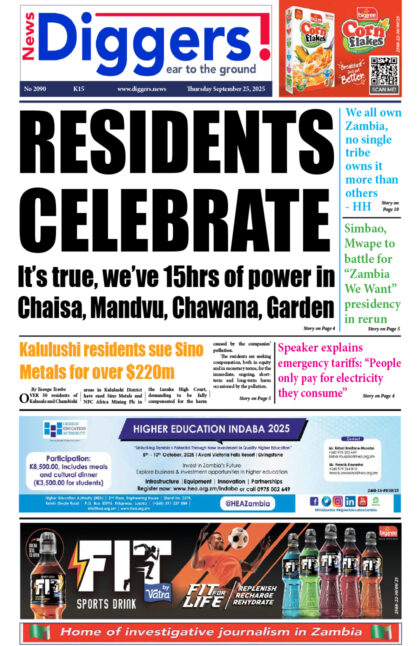Veteran politician Vernon Johnson Mwaanga has appealed to political leaders to expedite the dialogue process which has exacerbated political uncertainty in the country.
In an interview, Mwaanga noted that dialogue process would significantly address lawlessness and hatred.
“In the last few months, the word on our politician’s lips has been dialogue. High expectations have been created and the hope was that the Commonwealth-led dialogue by Professor Ibrahim Gambari would have produced positive results by now. As misfortune would have it, this well-prepared process was grossly undermined by some of the players who tried to impose an alternative process on which there had been no consultation or agreement. Involving the church mother bodies was the right thing to do. They were involved in productive dialogue between UNIP and the MMD in 1990 and 1991 and displayed great maturity and impartiality. Using the Commonwealth as resource persons and secretariat, they will do a commendable job, which will produce salutary results for our country and its people. Dialogue brings together a diverse set of voices aimed at creating a microcosm of the larger society,” Mwaanga said.
“Unlike other forms of discussion, dialogue participants must be willing to learn from each other, listen to each other and not mock or merely score cheap political points. It is not a one size fits all strategy. It removes violence, mistrust and hatred which appears to be consuming our country. Dialogue participants must be willing to show empathy towards each other, respect each other, recognize differences as well as areas of common ground. In dialogue, there are no losers. People must be willing and able to make compromises and shift positions for the sake of the larger good. I want to appeal to our political leaders to inject urgency in this process, so that it can start immediately. They should not give the prophets of doom and gloom an undeserved chance to write a premature obituary about the death of the dialogue process in our country.”
He highlighted the need to preserve Zambia’s democracy.
“Democracy is not a cure to all evils, but it acts as a vehicle for people to freely express their views without hindrance, which ultimately influences the laws and decisions made by the government of the day. By allowing citizens the freedom of expression, the government benefits from the ideas of their citizens. In countries where citizens fear to speak freely, autocracy takes root and citizens begin to fear the government they have elected, rather than the other way round. A small group of people begin to make all the decisions on behalf of the people, without their consent and influence. Throughout history, democracies have been the exception rather than the norm. People living in a democracy use their own potential to the full and contribute significantly to finding collective solutions to national problems. The main benefits of democracy are that every adult person regardless of ethnicity, race, political affiliation, gender or religious belief, has equal have equal rights,” said Mwaanga.
“They are all protected from abuse, violence, oppression by laws which are applied equally and fairly, to ensure a safe and fair society for all. The people who make or enforce these laws have to obey the same laws as anyone else. More democracy leads to less internal violence, fewer wars and less insecurity among citizens. It reduces political uncertainty and instability and assures citizens that they will be given a regular chance to change those who are in power through free and fair elections. Democracy allows for information to be made freely available to the public through an independent press to enable them to formulate and manage their political, social and economic lives. Where these ingredients exist, the people are generally happier.”























